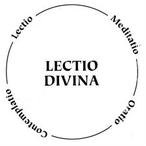Prayer & Faith ResourcesCommon Prayers Liturgy of the Hours Friday Adoration How to Pray the Rosary Stations of the Cross Mary & the Saints Novenas Reading The Bible The WORD Among Us |
Reading The BibleWe use words to communicate, to think and to figure things out.
Words can inspire us, change us, challenge us and even hurt us. What happens when God communicates? When God speaks to us? When God enters the human conversation? This is called Revelation - God revealing himself to us throughout history. God's word is The Bible. Meditating on Sacred Scripture
God invites us into a relationship with Him that is both personal and communal. He speaks to us through His Son, Jesus Christ, the Word-made-flesh. Prayer is our response to God who is already speaking or, better yet, revealing Himself to us. Therefore, prayer is not merely an exchange of words, but it engages the whole person in a relationship with God the Father, through the Son and in the Holy Spirit.
In Sacred Scripture, the Church constantly finds her nourishment and her strength, for she welcomes it, not as a human word, but as what it really is, the word of God. In the sacred books, the Father who is in heaven comes lovingly to meet His children, and talks with them. Catechism of the Catholic Church 104
Praying with The Bible
lectio divina
Meditating on Sacred Scripture, especially the Gospels, is an important form of meditation. This spiritual reading is traditionally called lectio divina or divine reading. Lectio divina is prayer over the Scriptures. For the Daily Scripture Readings from Mass How do we pray over the Sacred Scriptures?
|
May every day of our lives thus be shaped by a renewed
encounter with Christ, the Word of the Father made flesh: He stands at the
beginning and the end, and “in Him all things hold together” (Col 1:17). Let us
be silent in order to hear the Lord’s word and to meditate upon it, so that by
the working of the Holy Spirit it may remain in our hearts and speak to us all
the days of our lives. Pope Benedict XVI, The Word of God
encounter with Christ, the Word of the Father made flesh: He stands at the
beginning and the end, and “in Him all things hold together” (Col 1:17). Let us
be silent in order to hear the Lord’s word and to meditate upon it, so that by
the working of the Holy Spirit it may remain in our hearts and speak to us all
the days of our lives. Pope Benedict XVI, The Word of God
